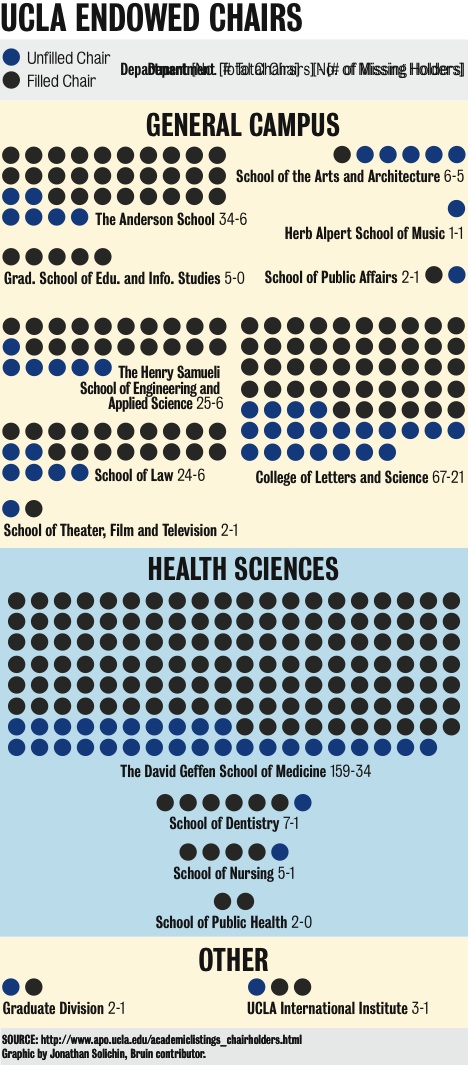Lane Hirabayashi was comfortably employed at UC Riverside when he heard about a search to fill an endowed chair at UCLA.
At first, he was hesitant to apply. There was no reason for him to leave his fully tenured position in Asian American studies, and he had no desire to repack the boxes he used to move into his office two and a half years before.
But he was persuaded otherwise.
“I think that UCLA has one of the largest and most important collections of Japanese American documents,” he said. “These things, along with the prestige ““ it’s very prestigious to hold a UCLA endowed chair.”
Hirabayashi now serves as the George and Sakaye Aratani Chair on the Japanese American Redress, Internment and Community, a position in the UCLA Asian American Studies Center. As the title suggests, Hirabayashi’s endowed chair is supported by a donor who wishes to fund research and instruction in a particular topic.
He will hold this title until his retirement from the university, though not all chairs are permanent positions.
Endowed chairs are a key part of faculty recruitment and retention, said Victoria Sork, dean of life sciences in the College of Letters and Science. In a time of greater competition for eminent professors, the prestige and funding attached to these positions can make the difference, she said.
This year, UCLA has 344 of these titles, 86 of which are unfilled.
These vacancies can be attributed to a number of reasons. In some cases, especially in the arts, the empty positions provide for a constant stream of visiting scholars and professional artists, said Christopher Waterman, dean of the School of the Arts and Architecture.
“Endowed chairs give you a way to attract new stars … or diversify what you can offer to students,” he said. “This is especially important in the arts ““ that we’re not stuck in the mud.”
Sometimes, a chair cannot be filled because of narrow restrictions by the donor on the scholarship of the chair, a request that does not always align with faculty positions in a department, Sork said.
Others are deliberately left unfilled to build up interest and make it more attractive for the next potential recruit or current faculty member.
Though UCLA is currently conducting several national searches to fill these vacant positions, the university, as a whole, lags behind private universities in terms of chair availability, said David Yoo, director of the UCLA Asian American Studies Center.
UCLA especially pales in comparison to Ivy League colleges, which have existed for hundreds of years and have established a tradition of giving, he added.
The call for more endowed chairs is a common refrain among individual departments and schools alike to aid recruitment.
“If I had more chairs, I would have no problems filling them,” Sork said.
